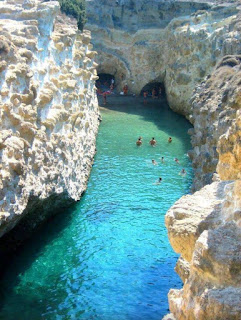Greece: The Birthplace Of Democracy
Greece, officially the Hellenic Republic and known since ancient times as Hellas, is a country located in southeastern Europe. According to the 2011 census, Greece's population is around 10.8 million. Athens is the nation's capital and largest city, with Thessaloniki being the second largest and referred to as the co-capital.
Greece is strategically located at the crossroads of Europe, Asia, and Africa. Situated on the southern tip of the Balkan peninsula, Greece shares land borders with Albania to the northwest, the Republic of Macedonia and Bulgaria to the north and Turkey to the northeast. The country consists of nine geographic regions: Macedonia, Central Greece, the Peloponnese, Thessaly, Epirus, the Aegean Islands (including the Dodecanese and Cyclades), Thrace, Crete, and the Ionian Islands.
The Aegean Sea lies to the east of the mainland, the Ionian Sea to the west, and the Mediterranean Sea to the south. Greece has the longest coastline on the Mediterranean Basin and the 11th longest coastline in the world at 13,676 km (8,498 mi) in length, featuring a vast number of islands (approximately 2,000, of which 227 are inhabited). Eighty percent of Greece is mountainous, of which Mount Olympus is the highest peak at 2,917 m (9,570 ft). The Currency is Euro (€)(EUR).
Some interesting facts are:
1. The world’s third leading producer of olives, the Greeks have cultivated olive trees since ancient times. Some olive trees planted in the thirteenth century are still producing olives.
2. Greece has zero navigable rivers because of the mountainous terrain. Nearly 80% of Greece is mountainous.
3. An old Greek legend says that when God created the world, he sifted all the soil onto the earth through a strainer. After every country had good soil, he tossed the stones left in the strainer over his shoulder and created Greece.
4. Greece is the leading producer of sea sponges.
5. Many Greek structures such as doors, windowsills, furniture, and church domes are painted a turquoise blue, especially in the Cyclades Islands. It is used because of an ancient belief that this shade of blue keeps evil away.
6. Greece was once a mass of rock that was completely underwater. When a tectonic plate crashed into Europe, the collision created Greece’s mountainous ranges. The plate is still moving and causes earthquakes all around the Aegean.
7. A Spartan specialty was a black soup made from salt, vinegar, and blood. No one in the rest of Greece would drink it.
8. Greek’s highest elevation is the legendary home of Zeus and other Olympian gods and goddesses, Mount Olympus at 9,750 feet (2,917 meters). Its lowest elevation is the Mediterranean Sea, or sea level.
9. Alexander the Great was the first Greek ruler to put his own face on Greek coins. Previously, Greek coins had shown the face of a god or goddess.
For more facts visit:
http://www.lonelyplanet.com/greece
http://www.factmonster.com/country/greece.html
http://facts.randomhistory.com/interesting-facts-about-greece.html
http://listverse.com/2014/07/21/10-myths-and-untold-facts-about-ancient-greece-and-rome/
Some beautiful places are:
For tourism details visit:
+VisitGreece +visitgreecegr +VisitGreece +Visit Greece +Greece Tour Specialist +GreeceTourismPort
http://www.visitgreece.gr/#&slider1=2
#LetsNailedTheWorld
The Untold Stories:
http://khanshahebaz.blogspot.com/
http://theuntoldnarrations.blogspot.in/
Find Me: Shahebaz Khan
Facebook: https://www.facebook.com/shahebazk
Twitter: https://twitter.com/shahebaz001
Instagram: https://instagram.com/shahebaz001/ #shahebaz
Greece is strategically located at the crossroads of Europe, Asia, and Africa. Situated on the southern tip of the Balkan peninsula, Greece shares land borders with Albania to the northwest, the Republic of Macedonia and Bulgaria to the north and Turkey to the northeast. The country consists of nine geographic regions: Macedonia, Central Greece, the Peloponnese, Thessaly, Epirus, the Aegean Islands (including the Dodecanese and Cyclades), Thrace, Crete, and the Ionian Islands.
The Aegean Sea lies to the east of the mainland, the Ionian Sea to the west, and the Mediterranean Sea to the south. Greece has the longest coastline on the Mediterranean Basin and the 11th longest coastline in the world at 13,676 km (8,498 mi) in length, featuring a vast number of islands (approximately 2,000, of which 227 are inhabited). Eighty percent of Greece is mountainous, of which Mount Olympus is the highest peak at 2,917 m (9,570 ft). The Currency is Euro (€)(EUR).
Some interesting facts are:
1. The world’s third leading producer of olives, the Greeks have cultivated olive trees since ancient times. Some olive trees planted in the thirteenth century are still producing olives.
2. Greece has zero navigable rivers because of the mountainous terrain. Nearly 80% of Greece is mountainous.
3. An old Greek legend says that when God created the world, he sifted all the soil onto the earth through a strainer. After every country had good soil, he tossed the stones left in the strainer over his shoulder and created Greece.
4. Greece is the leading producer of sea sponges.
5. Many Greek structures such as doors, windowsills, furniture, and church domes are painted a turquoise blue, especially in the Cyclades Islands. It is used because of an ancient belief that this shade of blue keeps evil away.
6. Greece was once a mass of rock that was completely underwater. When a tectonic plate crashed into Europe, the collision created Greece’s mountainous ranges. The plate is still moving and causes earthquakes all around the Aegean.
7. A Spartan specialty was a black soup made from salt, vinegar, and blood. No one in the rest of Greece would drink it.
8. Greek’s highest elevation is the legendary home of Zeus and other Olympian gods and goddesses, Mount Olympus at 9,750 feet (2,917 meters). Its lowest elevation is the Mediterranean Sea, or sea level.
9. Alexander the Great was the first Greek ruler to put his own face on Greek coins. Previously, Greek coins had shown the face of a god or goddess.
For more facts visit:
http://www.lonelyplanet.com/greece
http://www.factmonster.com/country/greece.html
http://facts.randomhistory.com/interesting-facts-about-greece.html
http://listverse.com/2014/07/21/10-myths-and-untold-facts-about-ancient-greece-and-rome/
Some beautiful places are:
For tourism details visit:
+VisitGreece +visitgreecegr +VisitGreece +Visit Greece +Greece Tour Specialist +GreeceTourismPort
http://www.visitgreece.gr/#&slider1=2
#LetsNailedTheWorld
The Untold Stories:
http://khanshahebaz.blogspot.com/
http://theuntoldnarrations.blogspot.in/
Find Me: Shahebaz Khan
Facebook: https://www.facebook.com/shahebazk
Twitter: https://twitter.com/shahebaz001
Instagram: https://instagram.com/shahebaz001/ #shahebaz


















Comments
Post a Comment